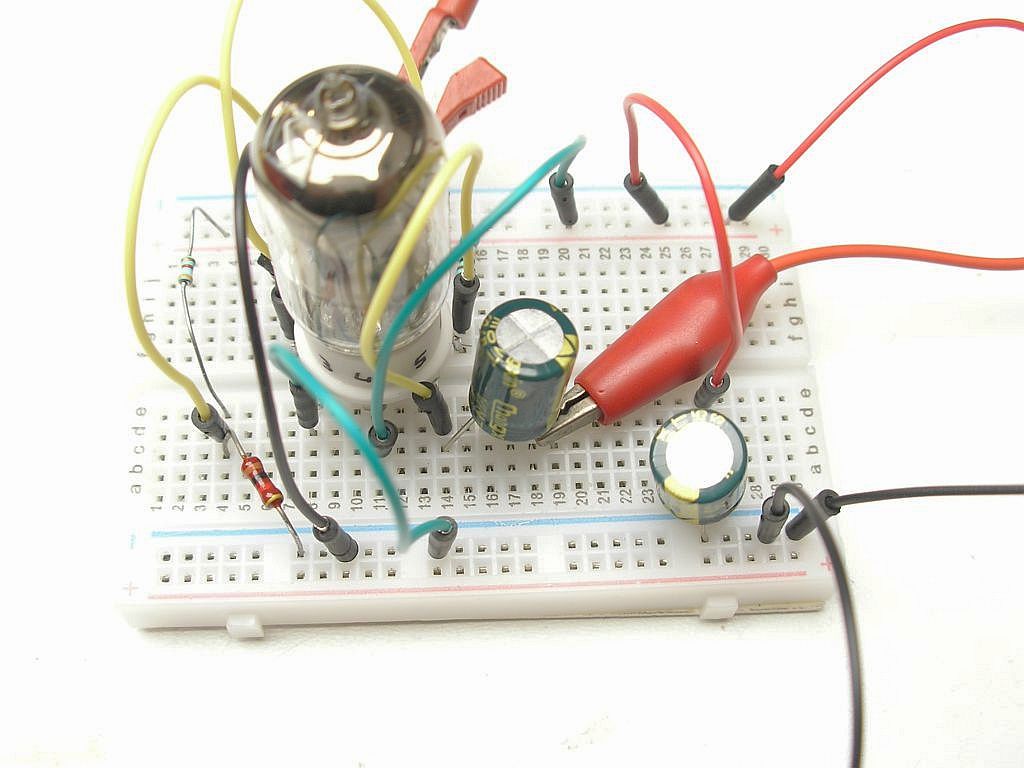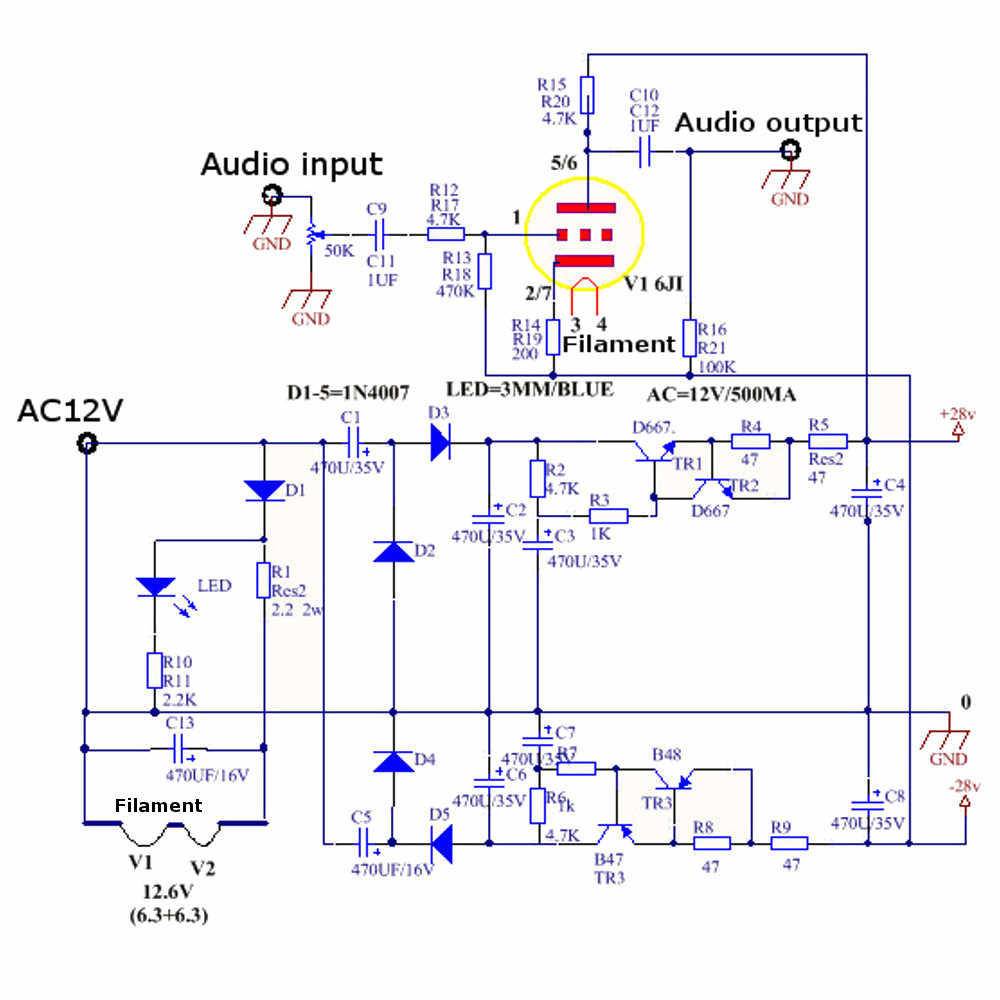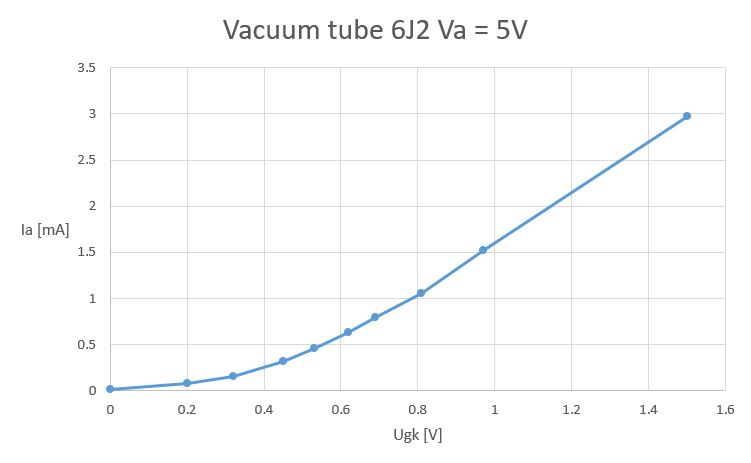Vacuum tube works on 3.3V totally
Vacuum tubes are awkward, need always 6.3V filament and high supply voltage? No, they can also work on 3.3V. I have built a vacuum tube pre-amplifier that runs entirely on 3.3V, inclusive the filament voltage. Apparently, the electron emission of the filament still works at 3.3V. Despite the very low supply voltage, the tube amplifier still works well.
Intro
To be able to do experiments with vacuum tubes, I bought a cheap DIY 6J1 tube amplifier on AliExpress. Like most vacuum tube circuits, it uses a relatively high supply voltage of 60V. However, a high voltage is not always required for vacuum tubes, sometimes 12V is used. I was curious how far one can go with reducing the power supply. Nowadays the most used power supply voltage for electronics is 3.3V, before this was 5V.

 Circuit 6J2 tube preamp with 3.3V filament and anode voltage
Circuit 6J2 tube preamp with 3.3V filament and anode voltage Cheap 6J1 tube preamp board from AliExpress
Cheap 6J1 tube preamp board from AliExpress
 6J2 tube preamp circuit supplied with 60V
6J2 tube preamp circuit supplied with 60V
Tube preamp that runs entirely from 3.3V
Tube amplifiers are used for nostalgia reasons and to get the characteristic tube sound. For this purpose, this preamp is useful, and you can simply power it from USB. The gain is -3.5 and music sounds undistorted. Just the red light from the filament is dimmed.
With a supply voltage of 5V, resistor R1 better can be 3.9k Ohm.
Who can add more information to this page and create extra charts?


Note that the distortion is small.

There are some oddities caused by the low supply voltage of 3.3V
- The grid-cathode voltage is positive instead of negative
- The grid current is very high, 0.3 mA
Vacuum tube 6J2 characteristics at very low HV voltages
 Tube 6J2 characteristics with 3.3V filament and anode voltage: Ia vs Ugk
Tube 6J2 characteristics with 3.3V filament and anode voltage: Ia vs Ugk
Note that the control-grid voltage is positive.
 Tube 6J2 characteristics with 5V filament and anode voltage: : Ig vs Ugk
Tube 6J2 characteristics with 5V filament and anode voltage: : Ig vs Ugk
Note that the control-grid current Ig is very high!
See also this project at Hackaday
Links

